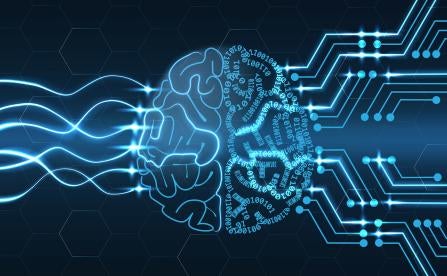Artificial Intelligence (AI) has changed our lives. Improvements in data mining, personal and automotive navigation, cybersecurity, personal entertainment and healthcare are several examples of the impact of AI.[1] Recognizing that technological process can be measured by a review of the patent literature, the USPTO recently examined the patent literature from 1976 through 2018 to gauge the potential impact of AI on technology and innovation.[2] It found a significant increase in patents using or covering AI. Patents containing AI appeared in about 42% of all technology subclasses in 2018 as compared to only 9% in 1976. The study also reported that the percentage of inventor-patentees active in AI started at 1% in 1976 and increased to 25% by 2018. Similar growth was reported for organizations patenting in AI.[3]
AI in Precision Medicine
Precision medicine recognizes that patient subpopulations can be identified who differ in their disease risk, prognosis and response to treatment due to differences in underlying biology and other characteristics.[4] However, to develop personalized therapies, vast amounts of “data and insights on different individuals are required to create truly personalized medicine and care, and often these huge datasets cannot be collected or analyzed manually.”[5] Machine learning can assist with this analysis[6] and indeed already has. High performance computers and AI algorithms have been shown to predict risk in “certain cancers and cardiovascular disease from available multidimensional clinical and biological data.” [7]. Using the results of pathological specimens, AI algorithms also have applied learning strategies to predict diagnosis and staging from pathological specimens received from a new patient.[8]
Promises and Challenges of AI
Advances in data collection and analysis can serve to advance precision medicine. As the amount of collected data increases, AI can manage and analyze this data for the benefit of patients.
Foley & Lardner and the California Technology Council have produced a series of podcasts that explore data science, machine learning and artificial intelligence. While not limited to the advances that AI can and have brought to precision medicine, the series’ experts touch on many issues relevant to precision medicine such as data integrity, cybersecurity, data bias, and patenting AI-inspired technologies.
1. See content.techgig.com/5-ways-ai-has-transformed-our-lives/articleshow/76230907.cms.
2. Inventing AI: Tracing the diffusion of artificial intelligence with U.S. patents, Office of the Chief Economist, IP Data Highlights, Number 5, October 2020, page 2.
3. Id. at page 2 and 7-9.
4. Uddin, M. et al. (2019) Artificial intelligence for precision medicine in neurodevelopmental disorders, npj Digit. Med. 2, at page 2.
5. See Alan Payne, The role of AI in advancing personalized healthcare,
6. Id.
7. Uddin et al. (2019), at page 1.
8. Id. at page 4.
9. Id. at page 2.




 />i
/>i